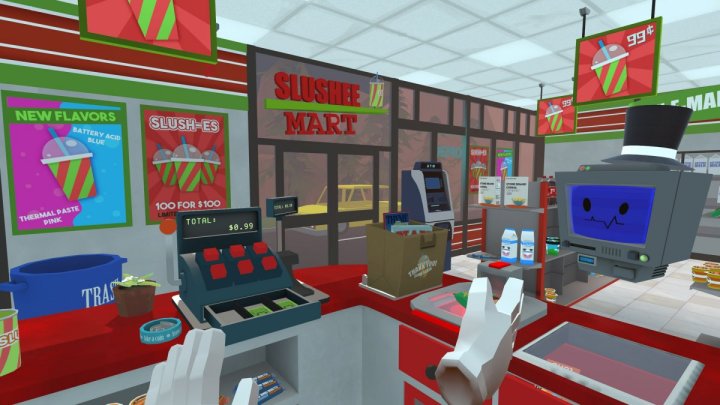
In a post addressing the acquisition, Owlchemy Labs said, “Owlchemy Labs makes things that are absurd, highly polished, and filled to the brim with terrible puns & jokes that we love making. We both believe that VR is the most accessible computing platform and that there’s a ton of work to be done, especially with regard to natural and intuitive interactions. Together with Google, with which we share an incredible overlap in vision, we’re free to pursue raw creation and sprint toward interesting problems in these early days of VR.”
Owlchemy Labs is best known for its 2016 VR title Job Simulator, which was given the nod as the best VR/AR game at the 2017 Game Developers Conference. Most recently, in April, Owlchemy Labs released Rick and Morty: Virtual Rick-ality for HTC Vive and Oculus Rift. Based on the popular animated show Rick and Morty, Virtual Rick-ality employed mechanics similar to Job Simulator, in that players can interact with a large portion of the environment and objects.
Today, Owlchemy Labs is a small, 23-person studio dedicated exclusively to creating innovative VR experiences. But before Owlchemy crashed onto the VR scene in a big way with Job Simulator, the studio had a bit of a different identity.
Founded in 2010, its first game, an iOS title called Super Ramen BROTHers, was created in just 24 hours. Over the next five years, the studio released five more traditional games, each one more complex and ambitious than the last. When Owlchemy started tinkering with VR, it concluded that there was no turning back.
“VR acted as an electromagnet for our science-focused brains as it presented us with the most expansive field of untapped potential and tough unsolved problems,” Owlchemy said.
In a separate statement addressing the acquisition, Google said, “Together, we’ll be working to create engaging, immersive games and developing new interaction models across many different platforms to continue bringing the best VR experiences to life.”
Owlchemy hasn’t announced what it is working on next, but now that the studio is under the Google umbrella, we wouldn’t be surprised if the scope of its next project is much broader.


